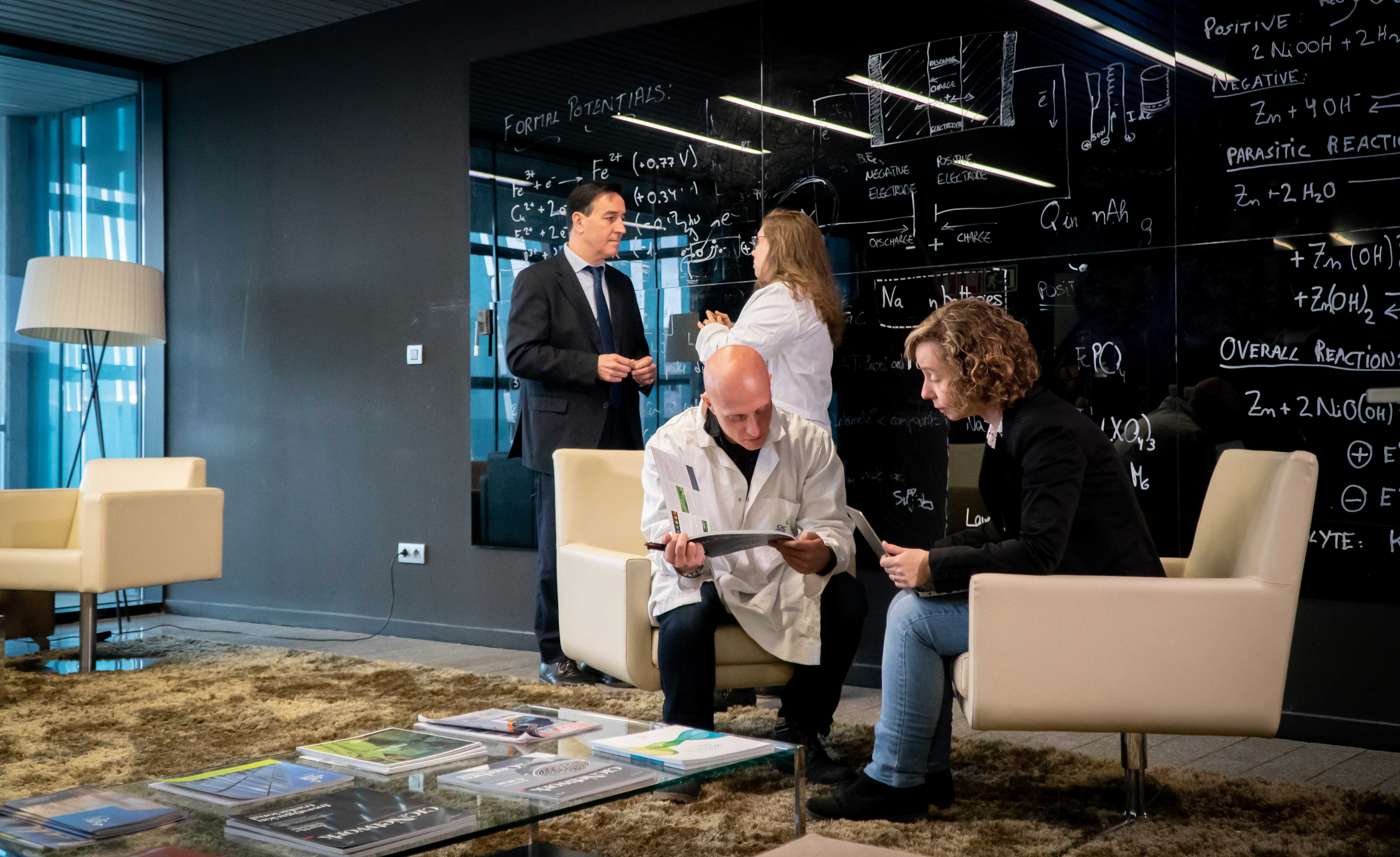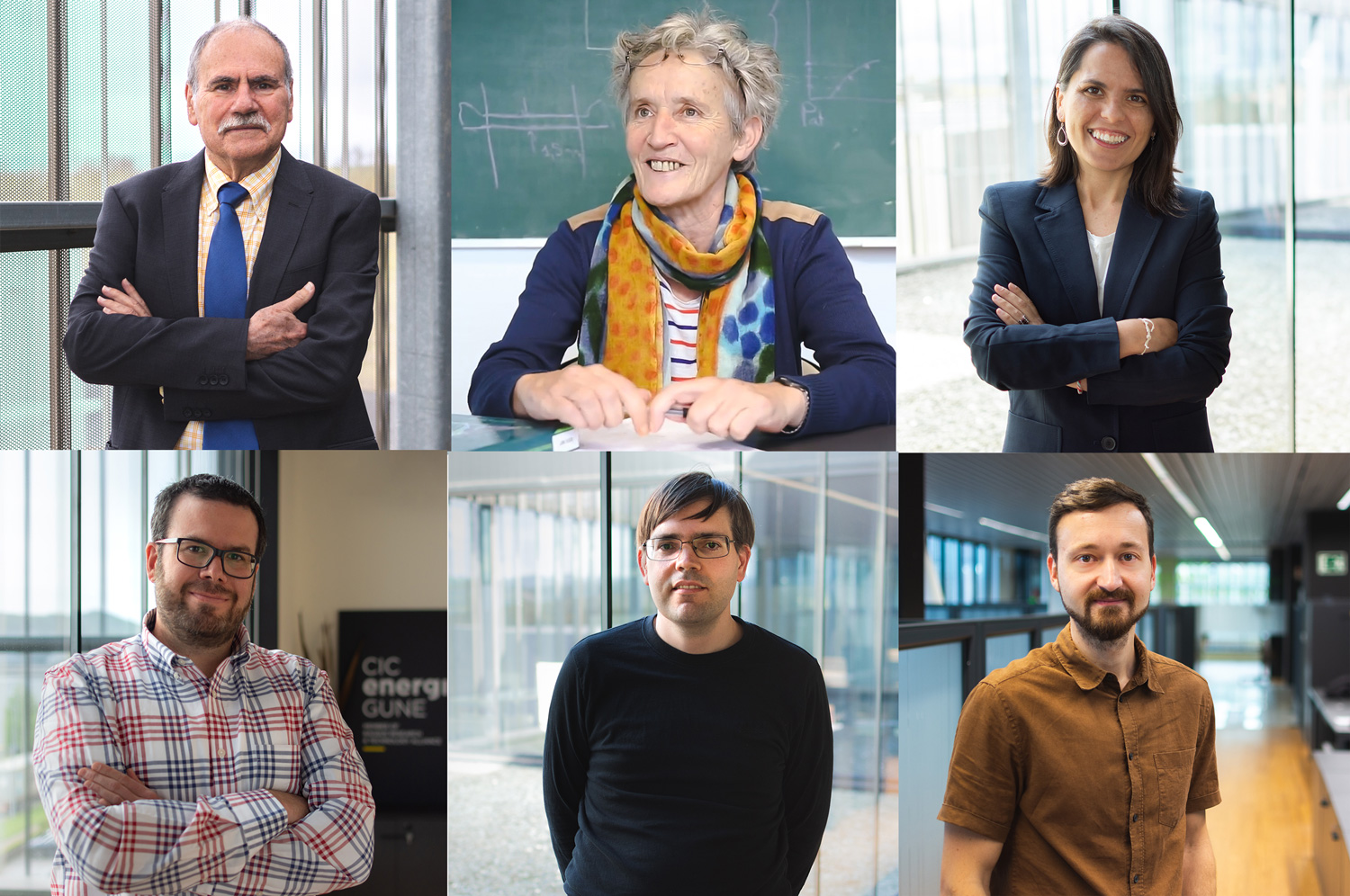CIC energiGUNE, the Basque research center of reference in battery storage, thermal energy solutions and hydrogen technologies, and member of the Basque Research & Technology Alliance-BRTA, ranks among its staff six of the most important scientists in the world, according to the “Ranking of the World Scientists”, reference list, elaborated annually by Stanford University and the academic publishing house Elsevier. The information regarding the scientific activity carried out in 2021 has been released this week and once again positions Michel Armand as the most important researcher in the Basque Country, considering all scientific fields, and in fourth place at the national level. Within the field of Energy, Professor Armand stands out as the most relevant researcher both in the Basque Country and in Spain, as well as being recognized as the seventh most important worldwide.
In the same way, Elena Palomo, Scientific Director of the Thermal Energy Solutions Area of CIC energiGUNE and Ikerbasque Professor, is placed, for the third consecutive year, as the most influential in the Basque Country and the sixth in Spain in the field of Mechanical Engineering and Transport.
The energy field, however, is the most relevant for CIC energiGUNE, since besides Michel Armand, the list also includes Montse Casas-Cabanas, Scientific Coordinator of the Electrochemical Storage Area of the center and Ikerbasque Research Associate, and Paramaconi Rodríguez, leader of the Electrochemical Hydrogen Technologies Area and Ikerbasque Research Professor, in the seventh and eighth positions of the most influential researchers in the Basque Country in this field. Both are also among the 150 most important researchers in Spain in this field.
Likewise, Javier Carrasco repeats as the third most influential researcher in the Basque Country in the field of Chemical Physics and one of the 50 most prestigious researchers in the territory considering all scientific fields. The prestigious list of Stanford University also mentions Yaroslav Grosu, leader of the Interfacial Phenomena and Porous Media group, among the most influential researchers in the world in the field of Applied Physics.
The list of the renowned Californian institution is based on the impact of published research, taking into account various factors such as co-authorship or the percentage of self-citations, as well as through the combined analysis of a series of standardized parameters directly related to the impact of indexed scientific publications. The study gives an overview of both the historical professional career of the researchers and the specific work carried out in the last year analyzed, which in this case corresponds to 2021.
Specifically, the list is divided into two parts. On the one hand, the result of the analysis of the year 2021, where more than 200,000 world researchers are cited (distributed in more than 20,500 centers), 3,648 at the national level (in 479 centers) and 168 at the Basque level (in 22 centers). On the other hand, the result of the career analysis to date (end of 2021), where more than 195,000 world scientists are named (distributed in more than 23,000 centers), 2,998 at national level (in 453 centers) and 129 researchers at Basque level (in 18 centers). In the latter case, the scientific careers of Michel Armand and Elena Palomo are also highlighted. Armand ranks first as the most influential researcher in the Basque Country and the State in Energy thanks to his long career, while Palomo is second and eighth, respectively, in Mechanical Engineering and Transport.





